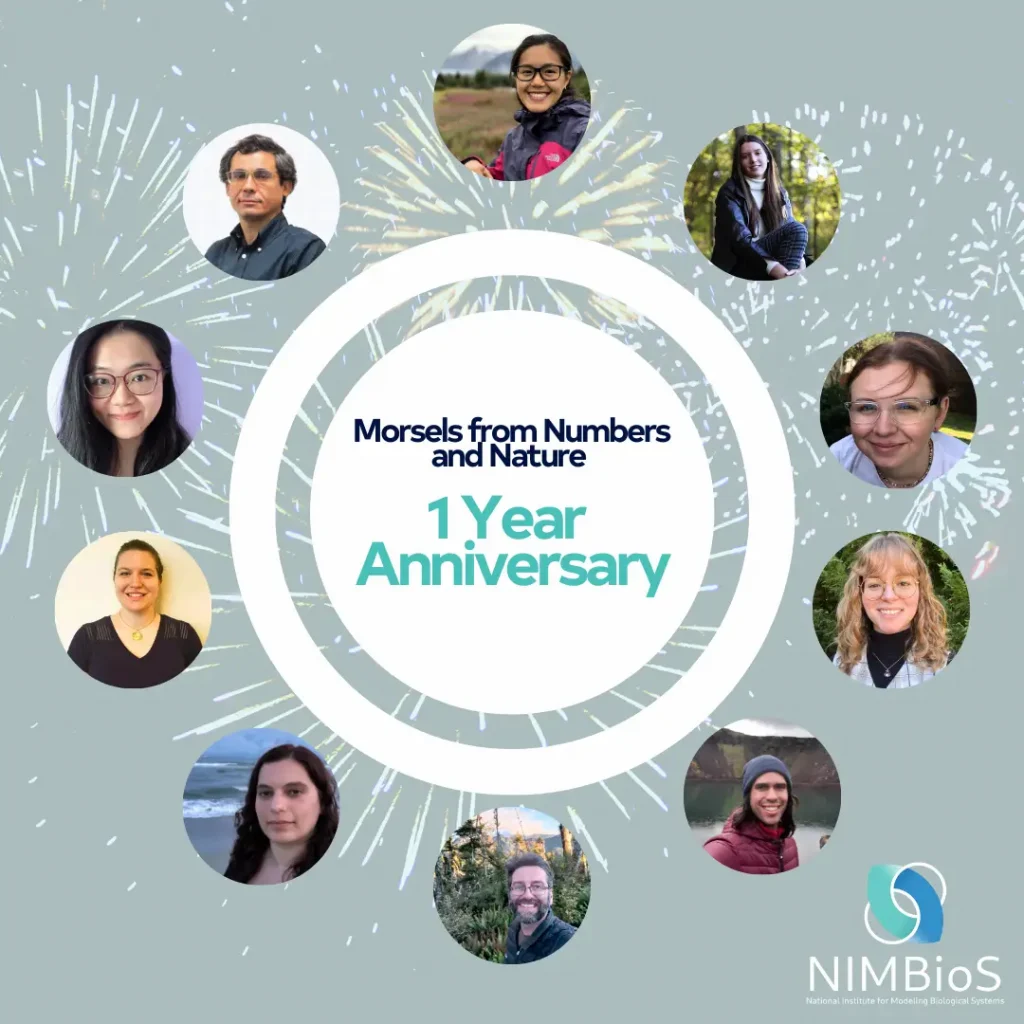Morsels Talk Series Mixes Numbers and Nature

The Morsels from Numbers and Nature series celebrated its first anniversary in October as it continues to share topical treats of curiosity and engagement throughout the UT science community.
The ongoing series is coordinated by NIMBioS, the National Institute for Modeling Biological Systems, as part of its mission to foster the growth of transdisciplinary approaches within mathematics and biology.
“We think the cutting-edge problems of tomorrow are best envisioned and then tackled by informal and collegial interactions where everyone is relaxed and having fun,” said NIMBioS Director Nina Fefferman, a professor in both mathematics and ecology and evolutionary biology. “Our Morsels series is one of our cornerstone elements: zero pressure, fun people, lots of curiosity, and purposefully supportive community. It’s such a rewarding thing to see it all come together.”
The anniversary Morsels talk was a presentation by Research Professor Rich Norby on “Adjusting for pre-treatment bias in a forest FACE experiment” at noon on October 17, featuring research that he recently published in Nature Climate Change.
Shared Ideas
Morsels is designed as a relaxed way for math and biology researchers—at any stage in their career, including current undergraduate and graduate students, postdocs, and recent graduates—to share their ongoing research and current thinking in 5–10-minute informal talks that invite discussion and feedback.
“It’s been really nice to see our community get to know each other better,” said Fefferman. “I love it when people meet in person and say, ‘Oh! I heard your Morsels talk about that project—that was cool. How is the project going?’ Being able to stay interested and involved in each other’s work, even when we aren’t all collaborating directly, is an amazing part of being a member of NIMBioS.”
Morsels Calendar
The talks are presented via Zoom on the third Thursday of each month (at rotating times to accommodate time zones). Attendees may join the live talks, which are also archived on a YouTube playlist.
“We’ve had some really cool topics covered this past year,” said Fefferman. “From how to think about definitions of biodiversity using the ‘Barbie’ movie, to how psychological factors influence responses to disease outbreaks, to how LLMs like ChatGPT can be used to broaden hypothesis generation in ecology. Our talks have also ranged from early thoughts to completed analyses. You never know what someone is going to apply to share from month to month.”
Researchers may apply online to present a Morsels talk, and are encouraged to share this opportunity with their departments, colleagues, students, and anyone else who might want to listen or apply to present. They also accept nominations for researchers who would deliver a compelling Morsel.
Speakers in upcoming Morsels talks include:
- “Adaptive Scaling of Skedastic Response to Biological System Entropy,” Matt Mihelic, University of Tennessee Graduate School of Medicine, Department of Family Medicine; 2 p.m. November 21.
- “A mathematical exploration of disease and diversity in oaks: The case of oak wilt disease,” Yorkinoy Shermatova, University of Minnesota, graduate student; 4 p.m. December 19.
- “Mobility, Modality, and Aptitudes; A COVID-19 forecast, a preliminary study,” Vinny Jodoin and Brenna Kelly, University of Tennessee, graduate student; noon January 16, 2025.
By Randall Brown